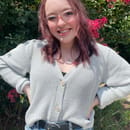There are few modern political figures more universally respected than Congressman John Lewis, and this was clear on October 11 when he walked into Harris Theater to thundering applause and a standing ovation at the Fall for the Book Festival.
Every incoming freshman is given a copy of a book at orientation as a part of the Mason Reads program. This book is carried through as a common curriculum to unite the school and the class as a whole. This year, the first volume of “March” was selected for its prevalent themes of unity against oppression and perseverance in the face of adversity, two extremely relevant forms of #resistance needed in our current political climate. The books’ imperativeness was stressed by Congressman Lewis as he claimed, “there are forces trying to take us back. We will not go back.”
Related: “Find a Way to Get in the Way:” Congressman John Lewis Speaks at American University
We all start from somewhere, whether that somewhere is Northern Virginia, a developing country or a large family farm, as with Congressman John Lewis. While his main duties as a child and early teen were to help run the farm, Lewis’ true passions rang out as he preached– to his chickens. While his long sermons may have fallen onto deaf ears — just as his congressional speeches sometimes do now — his inspiring motivation, mesmerizing speech and selfless leadership as we define him now were evident in those speeches all those years ago. While he isn’t preaching to chickens on a family farm anymore, the passions that inspired him then shines through in every speech he gives — including the one he delivered at George Mason.
When Lewis finished high school, his mother encouraged him to apply to the American Baptist Theological Seminary in Nashville, Tennessee. The school was created for African-American men and women to study and become ministers or missionaries and offered a work-study program on campus. John Lewis, from a humble background, took advantage of the program and washed dishes on the line as he attended. Lewis said in his book that “it wasn’t glamorous, but I got to know all the faculty, students, and visitors. Everyone needs to eat.” He was enamored with the new ideas being presented to him in his religion and philosophy classes and was particularly drawn to the Social Gospel. Created in the second half of the 1800’s, the Social Gospel Movement strengthened the connection between salvation and acts of service.
While learning about this in class, he couldn’t help but think about the people out fighting for justice in the world while he was reading about it in books, and he began to feel restless and longed to achieve more. He learned about Troy State, a bigger institution where he yearned to receive education from — and knowing the fact that no African-American had ever been allowed to attend — submitted an application. Months passed by without any response from them, a common way colleges discriminated against African Americans at the time. Lewis knew that there was one person who would help him get into the college and make a change: Dr. Martin Luther King Jr. When he met the Reverend, he remembers being called “the boy from Troy” and being told that he needed to be “all in” to the civil rights movement if he wanted to challenge this and take it to the court. Learning that committing to the case meant involving his family in a dangerous revolution, he decided to drop the case.
After taking matters of discrimination into his hands and reaching out to Dr. King, Lewis’ world, purpose and power changed forever… and good thing it did. He became extremely involved in nonviolent protests in his hometown, quickly rising to leadership positions within his organizations, and making a name for himself in the fight for equality. This launched him headfirst back into Dr. King’s world, resulting in him being the youngest person to speak at the March on Washington –the same place where Dr. King’s iconic “I Have A Dream Speech” was delivered. This platform not only allowed him to change the world in his time, but also to now show other youth who are frustrated with inequality and how the government is functioning– just as he was all those years ago– that it is very possible for young people to make a change. If groups of young, black activists made an impact during the age of segregation, there is virtually no way we cannot make a change if we as well put our minds to it. Via Georgia Voice
Not surprisingly, because of his vision and determination for equality, John Robert Lewis, as he liked to be called, became Georgia’s 5th district Representative in the United States Congress, where he would continue to make even more change. His popularity has been extraordinary: his votes received have rarely been under 70% and he has been voted to stay in office with 100% of all votes several times (Ballotpedia). Representing his people, Lewis is playing his role for America, and according to him, “we all have a role to play,” whether that be voting, protesting, sending letters, or like him, taking actions into our own hands. Elected in 1987, he has been representing three-fourths of the city of Atlanta ever since. That same year was the year author Andrew Aydin’s father left him and his mother.
Andrew Aydin, a young political activist who is now a close friend, worker and author for Congressman John Lewis has a unique background that he rose from. Being raised by a single mother, who he claims gave him his sense of social justice, Aydin remembers doubting his potential as a person. Yet he went on to attend Trinity College and Georgetown right here in D.C. and fulfilled his mother’s influence of social justice by becoming an activist. He started working for Congressman Lewis and their relationship (and his influence on the politics of today, and the future of tomorrow) has grown ever since.
The Congressman invited Andrew Aydin to join him as a press secretary on his 2008 campaign for reelection, which his mother wasn’t quite as impressed with as we are. “A secretary?” she asked doubtfully. During the campaign, a recurring question was how to reach young people and make them care about seemingly boring politics. Discussion after discussion passed without any headway being made until Aydin learned about “Martin Luther King and the Montgomery Story.” He first “heard about that comic from John Lewis, who told me that it played an important role in the [civil rights] movement. And so once he told me about that, it made me start thinking.” For Aydin, it was the perfect time to share the Congressman’s story and the story of the movement in a way that was not only going to be easy for young people to take in, but also would humanize him and other government representatives from unrelatable “saints,” to “real human beings.” After a lot of persuasion on Aydin’s part, the Congressman finally agreed to work on a comic book, but only under one condition: Andrew Aydin would write it with him. Aydin feels that we tend to put these iconic figures on a pedestal and don’t remember the person that lived behind the mask. It was important for him to show Lewis not only as a leader of the Civil Rights Movement, but also as someone who is terrified of thunderstorms (“If the march in Selma has been during a thunderstorm, we would live in a different world right now.”) and throws jelly beans around his office when he gets bored, because we are all humans and all humans have the capability of fostering change.
Related: Rosa Parks: The Real Story Behind a Civil Rights Icon
Via CBS News
Congressman Lewis was just 17 the first time he wrote to Dr. Martin Luther King Jr. — just like many current freshmen — asking for help regarding segregation standing in the way between him and Troy State. He was only 23 when he organized the March on Washington in 1963, where Dr. King gave his iconic “I Have a Dream Speech,” — around the age where many of us will leave Mason to go into the world. Regardless of how young and inexperienced you are, or are perceived to be, we all have the capacity and ability to influence change and create something bigger than ourselves or our organization. This was at the forefront of both Lewis and Aydin’s minds while creating the project of political responsibility through comic books, with Aydin saying, “imagine what this country would be like if every 9-year-old ha[d] a sense of social conscious. There would be no room for hatred or bigotry, the young people would simply not tolerate it.” We all have the opportunity to go down in history if we’re willing to take it. Just ask John Lewis.
Today, we are lucky enough that there is no legal form of segregation, but that does not mean that there are problems absent from within our government… problems that are not specific to a political party. Similar to Lewis, however, there are aspects of our government and our society that we might not agree with, but luckily, those things can be fixed with our action. We do not need to be as vocal as Lewis, or educated as Aydin to “make some noise.” We can stand up to injustice by getting out and voting, “like you’ve never voted before,” Lewis told all of us, “young people.” The reality is, we are already the next generation, the torch has already been handed to us, like Dr. Martin Luther King Jr. handed it to Lewis during the March on Washington, and Lewis did to Aydin in 2008. The responsibility of this nation is already in our hands, so we need to vote, regardless of who is in power or what issues we need resolved, but those sure are incentives, collegiettes!
Via George Mason University




